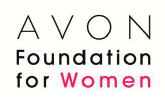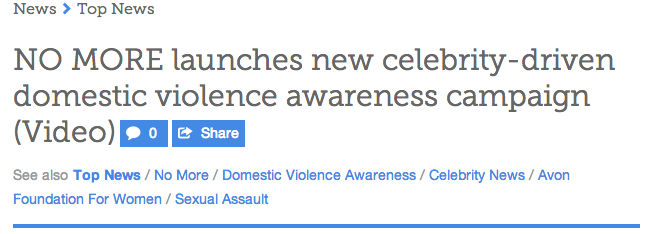Verizon Foundation, Society for Women’s Health Research Form Network to Explore Technology-Based Solutions to Reduce the Increased Chronic Health Risk of Domestic Violence on Women
WASHINGTON, D.C. – A significant link exists between many chronic health conditions and domestic violence, and the healthcare industry, support agencies and others must do more to make and act on that connection.
The survey, “Verizon Foundation and MORE Magazine Survey: Exploring the Relationship between Domestic Violence and Chronic Health Conditions,” found that 70 percent of adult American women over the age of 21 have a chronic health condition. That number rises to 81 percent among women who have experienced any form of domestic violence. This is especially serious given that 44 percent of women in the survey said they experienced a form of domestic violence.
Majority of Women Have Chronic Health Problems, With Significant Link to Domestic Violence
 Despite the high correlation between chronic health conditions and experiencing domestic violence, only 6 percent of women surveyed believe their doctor or nurse has ever made a connection between the two. Three-fourths of women say they have never been asked about domestic violence during a medical exam. Among women aged 65 and older, 85 percent have never been screened, though they are no less likely than their younger counterparts (aged 21 – 34) to experience domestic violence.
Despite the high correlation between chronic health conditions and experiencing domestic violence, only 6 percent of women surveyed believe their doctor or nurse has ever made a connection between the two. Three-fourths of women say they have never been asked about domestic violence during a medical exam. Among women aged 65 and older, 85 percent have never been screened, though they are no less likely than their younger counterparts (aged 21 – 34) to experience domestic violence.
A number of barriers prevent the majority of healthcare professionals from doing these screenings, according to a new white paper, “Domestic Violence and the Role of the Healthcare Provider: The Value of Educating on Assessment and Intervention Strategies,” that was presented at the Capitol Hill briefing. These obstacles include the widespread perception that domestic violence is a private issue; fear of offending a patient; fear of the patient’s abuser; a lack of understanding of abuse; time constraints; and lack of referral sources and procedures for screening.
The white paper was developed by Robert Wood Johnson University Hospital in New Brunswick, N.J., with support from the Rutgers University School of Social Work and the Verizon Foundation.
Elaine Hewins, domestic violence education and awareness program coordinator at the hospital and an author of the white paper, said, “Because healthcare providers are often the first responders to domestic violence, it is essential that they redefine the goals of routine screening and learn the skill sets to continually and consistently ask questions, making patients feel comfortable and safe enough to utilize healthcare professionals as resources and allies.”
Next Steps: Research, Innovative Solutions
To help address the issues raised by the survey, Verizon and the Society for Women’s Health Research have formed an international interdisciplinary team, Women’s Exposure to Violence and Chronic Disease Network.
“In our efforts to improve the care of women with chronic health conditions, it’s important to identify new technology solutions to help healthcare providers and patients overcome obstacles to reducing the long-term health impacts, which includes those from domestic violence,” said Rose Stuckey Kirk, Verizon vice president of global corporate social responsibility and president of the Verizon Foundation. “We believe we haven’t fully utilized technology that can greatly help doctors and patients manage care.”
The Women’s Exposure to Violence and Chronic Disease Network, funded by the Verizon Foundation, includes healthcare providers, domestic violence awareness advocates, and academic, government and healthcare technology leaders (see full list, here).
The network will conduct an in-depth examination of the chronic health consequences of domestic violence and how technology can be used to address this issue. Network members will review existing technology solutions and programmatic efforts, explore how to improve them, and identify best practices.
The leaders will then design and evaluate technology-based pilot programs, using Verizon’s innovative communications solutions, to develop interventions that address the link between chronic health conditions and exposure to domestic violence; educate patients on the risk factors between domestic violence and chronic health conditions; and empower women who have experienced violence to manage their chronic disease risk.
“For nearly 25 years, the Society for Women’s Health Research has been the national thought leader in women’s health and has advocated for greater investigation into the impact of domestic violence on chronic health conditions,” said Phyllis Greenberger, the organization’s president and CEO. “Through this new network, the Society for Women’s Health Research and Verizon are providing the first dedicated, in-depth examination of the chronic health consequences of domestic violence. We need to examine the current programmatic, scientific and societal gaps related to domestic violence and chronic health conditions. This innovative network’s goal is to develop solutions that will reduce the long-range health implications of domestic violence.”
More information on the connection between domestic violence and chronic health conditions, resources for healthcare providers and survivors, and ways to advocate for increased domestic violence screenings among health care professionals can be found at http://vz.to/chronichealthanddv.
to learn more ABOUT THE VERIZON/MORE SURVEY METHODOLOGY:
To better understand the connection between domestic violence and chronic health conditions, MORE partnered with the Verizon Foundation on The Verizon Foundation and More Magazine Survey: Exploring the Relationship between Domestic Violence and Chronic Health Conditions. Research organization GFK conducted the survey from Aug. 7 to Aug. 12, 2013. The survey polled a nationally representative sample of 1,005 women over age 21, and the survey’s margin of error for this study is +/-3.8%.
 Despite the high correlation between chronic health conditions and experiencing domestic violence, only 6 percent of women surveyed believe their doctor or nurse has ever made a connection between the two. Three-fourths of women say they have never been asked about domestic violence during a medical exam. Among women aged 65 and older, 85 percent have never been screened, though they are no less likely than their younger counterparts (aged 21 – 34) to experience domestic violence.
Despite the high correlation between chronic health conditions and experiencing domestic violence, only 6 percent of women surveyed believe their doctor or nurse has ever made a connection between the two. Three-fourths of women say they have never been asked about domestic violence during a medical exam. Among women aged 65 and older, 85 percent have never been screened, though they are no less likely than their younger counterparts (aged 21 – 34) to experience domestic violence.


